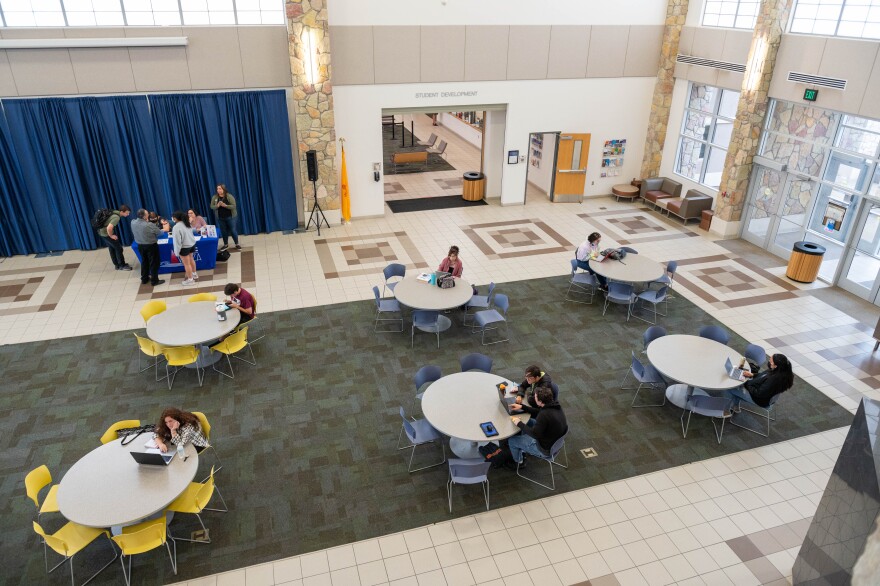Denise LaFrance-Ojinaga, marketing communication specialist at Doña Ana Community College, speaks with KC Counts about how a $77,000 grant will be administered to build journalistic skills among students and the community at large.
KC Counts:
Denise, as a former working journalist, I'm sure you can speak just a little bit, to kind of the changes we've seen in the industry over decades, but especially in more recent years with the dearth of working journalists in southern New Mexico covering important issues every day. So, tell us a little bit about what filling that void means for everyone across southern New Mexico.
Denise LaFrance-Ojinaga:
Well, I think it means better storytelling and reaching those that are underrepresented and giving them voices. You know, for those that aren't in journalism, they may not have seen the great decline of reporters and reporting staff and how newsrooms have shrunk across the board within newspapers and TV. We don't necessarily have your average photographer along with your reporter in a broadcast journalism setting. You have your multimedia journalist. And so that decline in the newsrooms has impacted the voices and the storytelling in our community because we just don't have enough reporters and photographers and videographers to tell the stories of what is impacting our community. So, this grant, we are hoping, is going to train more students to join this workforce, and even if they aren't going on the path of journalism, it's going to help them to understand how to story tell and how to work it in whatever fields that they're going into.
KC Counts:
Luckily, we have seen a pretty healthy outpouring of financial support to kind of pick up the slack in many places around the country and here in in New Mexico as well. And so, the grant that DACC is receiving will allow exactly what to happen.
Denise LaFrance-Ojinaga:
So, what we're going to use this for, it's a $77,000 grant for two years. We're going to implement some changes into our journalism course that we have. We don't have a large journalism program within the college. And So, what we want to do is implement some more journalistic skills into that course. And this grant is kind of multifaceted. So part of that is going to be implementing fact checking skills, interviewing experience, digital tools and platforms, and then helping them connect with professionals. Now, on an application basis, we are going to open up the grant to students interested in this journalism grant and give them an opportunity to have paid internships with the type of media of their choice. So, we would be looking at digital broadcasting where they'll be able to work in a newsroom setting and get some short-term experience and training on the job in there along with newspaper, television and radio. And so, we want them to bring those skills back to DACC and begin to form our very first student-run digital newspaper along with our very first mini student-run newscast in a way. So we have a small little studio within our Office of Strategic Initiatives and Relationships, and so we want them to bring those skills that they have learned in their internships back into DACC to begin their student-run media. Now another component of that is having community workshops for the public. So, if people are on, you know, you want to learn about the use of drones or you want to learn the use of storytelling you want to use it to help, maybe promote your businesses, maybe, you know, this is something that you're interested in as a hobby; we want to teach them these journalistic skills on what they need to come back and to tell the stories of their neighbors, tell the stories of themselves, tell the stories of their small businesses and just work around some of those skills that they need to learn as far as their First Amendment rights, media law, drone usage as I mentioned before. So, we really want to open that up to the public as well.

You can listen to the second part of this two-part conversation here:



